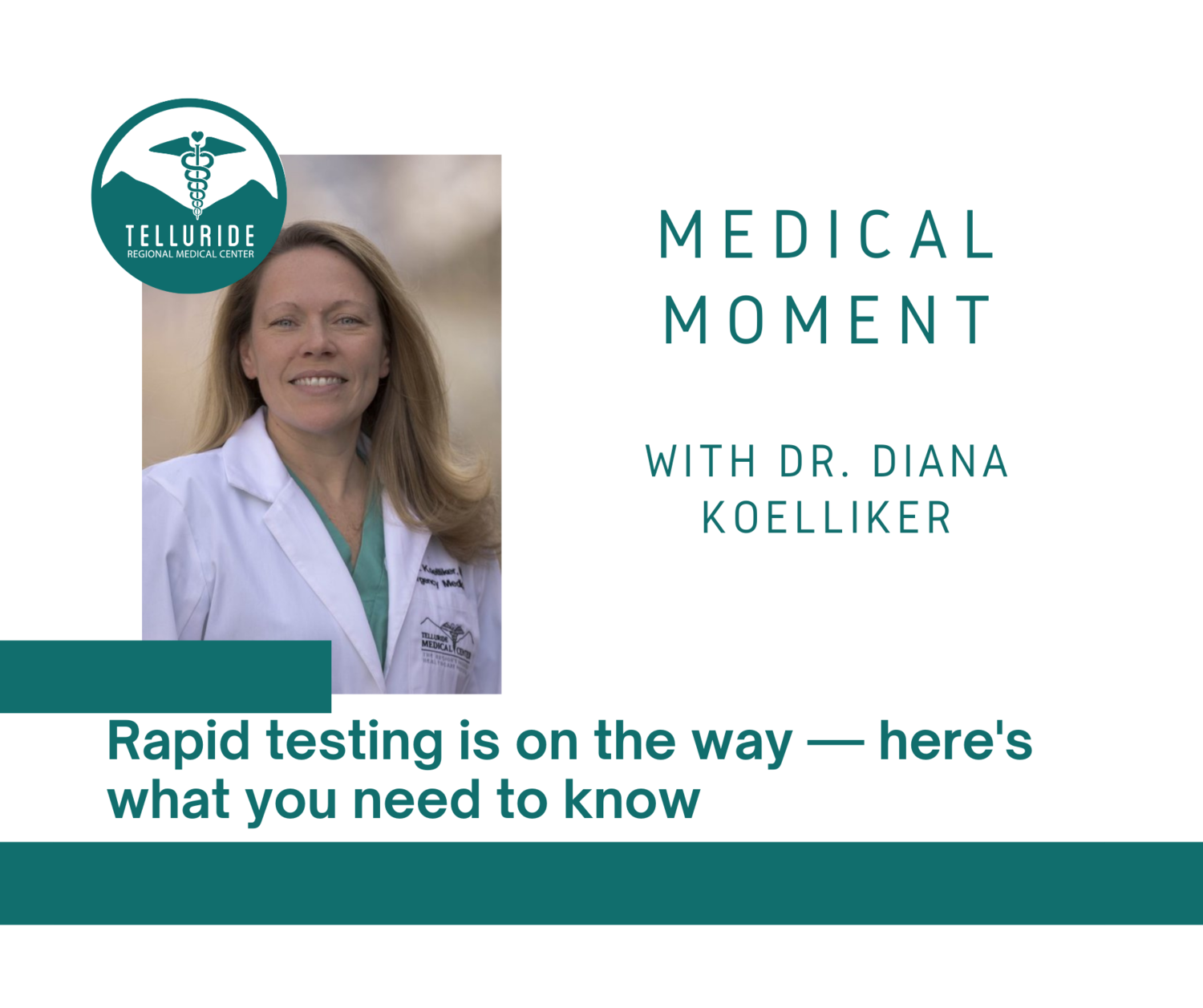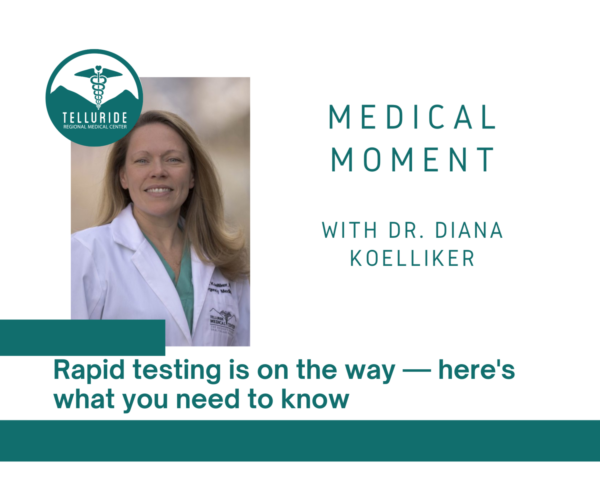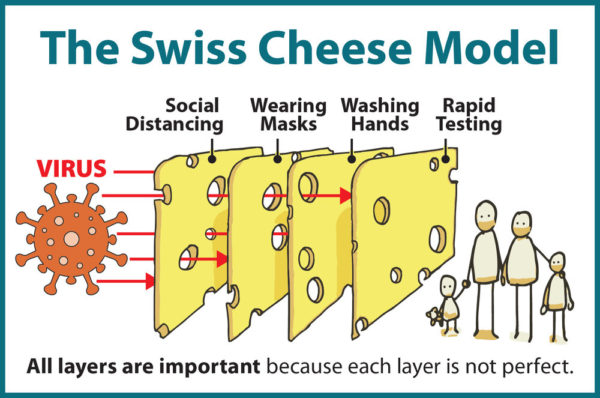
09 Nov Telluride Med Center: Medical Moment, Rapid Testing On the Way!
Donate to the Telluride Med Center’s Covid-19 Fund here. With the pandemic surging everywhere and the relocation to respiration clinic at Telluride Science’s Depot building, now more than ever the Med Center needs your support.
The following is a very important note from Dr. Diana Koelliker, Medical Director Emergency & Trauma Services, Telluride Regional Medical Center.

We can’t test our way out of this.
In April when I last laid out our short-, mid- and long-term testing goals for responding to COVID-19, we were still of the mindset that we could test our way out of this virus. We know now that just isn’t the case.
Don’t get me wrong, testing — having an abundance of tests, getting results quickly, and the affordability of tests — makes a huge impact on our ability to slow the spread of this novel disease. But it does not stop the spread.
We need to continue to apply a collective layered efforts and I love this graphic for demonstrating what I mean:

Rapid testing is on the way, here’s what you need to know:
In the next few weeks the Telluride Medical Center will add a rapid COVID-19 antigen test to our quiver. The equipment and technology that make that possible will also allow us to perform rapid antigen tests for strep and Respiratory Syncytial Virus (RSV) and influenza.
This new rapid antigen test will be used alongside, and in some cases in addition to, the PCR tests (spit/nasal) that we currently employ.
What is a rapid COVID-19 antigen test? These tests, which produce results in 15 minutes, look for a component of the COVID-19 virus, which implies current viral infection. More on that here.
Like many COVID-19 tests, our rapid antigen test will not be 100 percent accurate, but it will be the most effective test we have to date. For this reason, however, we may choose to layer a negative antigen test with a confirmatory PCR test in certain clinical scenarios.
That is not unlike having a negative rapid strep test, then sending a confirmatory throat culture to the lab.
Because testing is not perfect, Public Health and CDC guidelines dictate that anyone with respiratory symptoms or those who have had close contact to a person with a known COVID-19 infection quarantines for 10 days even after receiving a negative result.
False positives for both antigen and PCR tests are very uncommon, so if the result is positive, we do not require a confirmatory second test.
Who is eligible for rapid antigen testing?
The Telluride Medical Center’s rapid COVID-19 tests are limited and, for the foreseeable future, will use this method primarily to detect infection in symptomatic patients as deemed necessary during evaluation.
In other words, the rapid antigen test is not a test a patient can request, rather a tool providers cana elect to use as they see fit.
PCR tests will remain available for anyone who wants a test.
The Telluride Medical Center will continue to use the PCR tests (spit/nasal swab), which produce results generally within 2-5 days, for asymptomatic patients.
Anyone can receive a PCR COVID-19 test at the clinic. And we do have a fund to help with the cost for those who are eligible for assistance. ( Can you sponsor a neighbor in need?)
What does rapid testing mean for the community?
We have one more very effective way to detect the disease and slow the spread through contact tracing and isolation efforts.
And we will also be able to quickly distinguish between four respiratory diseases, each of which have vulnerable populations.
The new rapid testing, and the continued availability of PCR testing, will have a massive impact in our community, but only in tandem with other efforts, like the Swiss Cheese image indicates.
Until we have an effective and widespread vaccine, our best outcomes will require practicing good social distancing, personal hygiene and getting tested and isolating when we are sick.
The Five Commitments:
Everyone can protect their own health, the health of the community and the health of the local economy by making these five commitments:

More on prevention, exposure risks, testing and next steps here.
Things change, and we’ll continue to look at new science and technology and will always work to share what we know, as we know it, with the community.
We’re all in this together…


Sorry, the comment form is closed at this time.